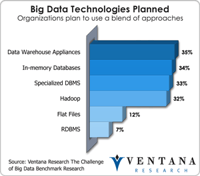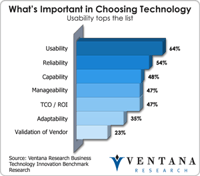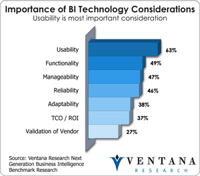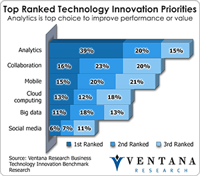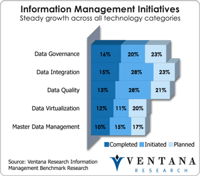Big data involves interplay between different data management approaches and business intelligence and operational systems, which makes it imperative that all sources of business data be integrated efficiently and that organizations be able to easily adapt to new data types and sources. Our recent big data benchmark research confirmed that big data storagetechnologies continue to follow many approaches, including appliances, Hadoop, and in-memory and specialized DBMSes. With the variety,...
Read More
Topics:
Big Data,
Data Quality,
Master Data Management,
Business Analytics,
Cloud Computing,
Data Integration,
Information Management,
Operational Intelligence,
Information Applications (IA),
Information Management (IM)
LucidWorks addresses the growing volume of information now being stored in the enterprise and in big data with two products aimed at the enterprise with search technology. Though you may not be familiar with LucidWorks (previously known as Lucid Imagination), the company has for many years contributed to Apache Lucene, an open source search project, and commercialized and supported for it for business.
Read More
Topics:
Big Data,
MapR,
Business Analytics,
Business Intelligence,
Business Mobility,
Cloud Computing,
Cloudera,
Hortonworks,
Customer Performance Management (CPM),
Information Management (IM),
Sales Performance Management (SPM),
Search,
Workforce Performance Management (WPM),
Strata+Hadoop
Business intelligence software is supposed to help businesses access and analyze data and communicate analytics and metrics. I have witnessed improvements to BI software over the years, from mobile and collaboration to interactive discovery and visualization, and our Value Index for Business Intelligence finds a mature set of technology vendors and products. But even as these products mature in capabilities, the majority lack features that would make them easy to use. Our recent research on ...
Read More
Topics:
Big Data,
Mobile Technology,
Natural Language,
Business Analytics,
Business Collaboration,
Business Intelligence,
Business Mobility,
Cloud Computing,
Governance, Risk & Compliance (GRC),
Location Intelligence,
Operational Intelligence,
Business Performance Management (BPM),
Customer Performance Management (CPM),
Discovery,
Information Management (IM),
Sales Performance Management (SPM),
Supply Chain Performance Management (SCPM),
Workforce Performance Management (WPM)
Business analytics have become mainstream in most organizations. Our latest research in technology innovation found analytics was the top-ranked technology in 39 percent of organizations. To deepen the sophistication of their analytics, businesses can add geographic context and maps to business intelligence applications to create what we call location intelligence. Applications and tools with a geographic and spatial context can help deliver new and deeper insights to business. Information...
Read More
Topics:
Social Media,
Geographic Information Systems,
GIS,
Location Analytics,
Operational Performance Management (OPM),
Spatial Data Quality,
Business Analytics,
Business Intelligence,
Cloud Computing,
Information Management,
Location Intelligence,
Business Performance Management (BPM),
Customer Performance Management (CPM),
Information Applications (IA),
Information Management (IM),
Sales Performance Management (SPM)
Managing data efficiently across the enterprise continues to be a large challenge for both business units and IT. Organizations need data supplied in a consistent format and timely manner to help manage their activities and processes, but some do not look beyond conventional approaches to improvement. Today’s large volumes of data make it more difficult to understand the relationships among data and the role of location-related data. Our 2012 benchmark research on information management found...
Read More
Topics:
Big Data,
Master Data Management,
Social Media,
MDM,
Operational Performance Management (OPM),
Business Analytics,
Business Intelligence,
Cloud Computing,
Data Governance,
Information Management,
Location Intelligence,
Customer Performance Management (CPM),
DG,
Information Applications (IA),
Information Management (IM),
IT Performance Management (ITPM),
Sales Performance Management (SPM)
